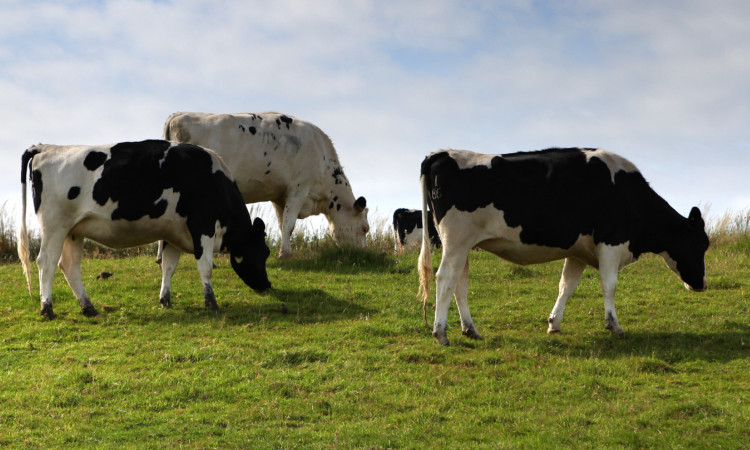
Herds brought in to defend Holy Island from foreign invasion.
Hungry cows and sheep have been drafted in to wage war on alien species of invading plant on the Holy Island of Lindisfarne.
More than half a million tourists a year visit the ancient island, off the Northumberland coast, which was first settled by St Aidan more than 1,300 years ago. But in the last few decades unwelcome guests such as Piri Piri Burr from New Zealand have caused a “nightmare” by carpeting sand dunes and strangling the life out of native species.
To combat the growing problem, a 25-strong herd of Wensleydale sheep has been put on the island over the winter. And about 30 cattle will be grazing an area of about 110 hectares until next month.
Andrew Craggs, senior reserve manager at Lindisfarne for Natural England, said: “Lindisfarne is a bit of a honeypot for tourists. We have up to 600,000 a year.
“Piri Piri Burr is a plant which should not be there, so we are trying to find a sustainable way of removing it. The grazing removes the burrs. The animals also trample it in the winter but that does not kill the plant because it has really strong roots which come up again in the spring.”
Piri Piri Burr was first discovered in northern England in the 1930s. It is thought to have been borne on sheep fleeces shipped from New Zealand down the River Tweed to be processed. It has been discovered as far north as north-east Scotland and as far south as Dorset. Its burrs stick to clothing, particularly man-made fibres such as nylon, and animal fur. They are then snagged off clothing in new locations, causing the plant to colonise more areas.”
Experts say it could cause similar environmental problems to Japanese knotweed, Britain’s number one invader, which has become almost indestructible without the use of herbicides.
The National Trust (NT) spends a huge amount of time managing invasive species such as Piri Piri and other colourfully-named non-native species. They also include Red Hot Poker, Snow in Summer and Giant
Hogweed, which can burn, blister and cause blindness. In 2010, the NT estimated that keeping unwelcome guest species under control costs the country an estimated £2.7 billion a year.
Kevin Redgrave, NT coastal ranger for Lindisfarne and the Northumberland coast, described Piri Piri as a “rather unpleasant burr” which can get tangled in the fur of animals such has rabbits and foxes, immobilising them.
“We have seen a collie which has had all its legs bound together,” he said. “It had to be taken to a vet and have all its fur cut off.”
Lindisfarne, the Holy Island, is known as the cradle of English Christianity. It was settled by St Aidan in AD 635, and is the former home of one of the great English saints, Cuthbert. The Priory, now a dramatic ruin, was dissolved by Henry VIII and some of its stones were used to build the crag-top castle that provides Lindisfarne’s famous profile. Much of the island is designated a nature reserve that attracts thousands of migrating birds. It is noted for its spectacular dunes and rocky bays, dotted with grey seals.

Enjoy the convenience of having The Sunday Post delivered as a digital ePaper straight to your smartphone, tablet or computer.
Subscribe for only £5.49 a month and enjoy all the benefits of the printed paper as a digital replica.
Subscribe